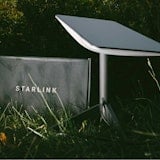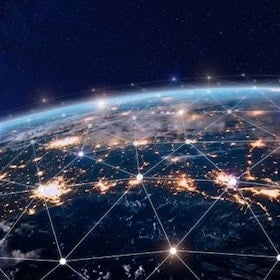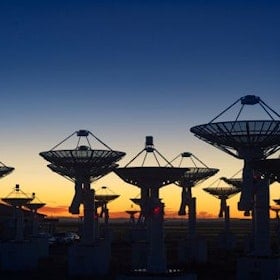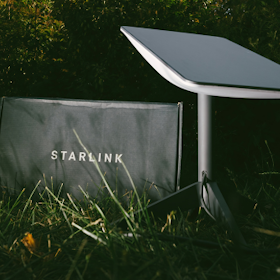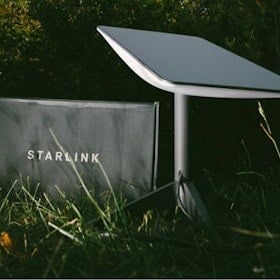
Article Summary
VPN is an acronym for virtual private network. A VPN provides encryption, so your data is protected while you’re browsing on a public WiFi network. There are a number of VPN services to choose from at a variety of price points. If you like the idea of securing your life online, VPNs are a solid investment and provide great, long-term value. In today’s world, most would agree that keeping your information is secure is crucially important.
Pros & Cons of VPNs
- Added security and protection from cyberattacks
- Privacy
- Anonymity
- Site unblocking
- Extra cost
- Not 100% foolproof
- Can slow down your connection
What is a VPN?
VPN stands for virtual private network, and it’s one of the easiest ways to protect your anonymity and secure your data. Think of it like this: your internet provider is like a tunnel. As you switch between your computer, phone, and laptop, your internet provider can see inside that tunnel, so to speak. If you go to an airport or coffee shop and connect to the public WiFi, you enter a new tunnel, and anyone on that open network can now look inside the tunnel, too.
Freaked out yet? That’s where VPNs come in. A VPNs is like an opaque tunnel within a tunnel. In this case, people on the outside tunnel can’t see inside of your private tunnel, making a VPN an excellent way to improve your privacy and maintain your anonymity when you’re on the internet.
How does a VPN work?
To understand how a VPN works, you have to understand how the internet works. When you visit a website on the internet, you type in a domain name (say Facebook or Twitter). An IP address is just like your home address, only it consists of numbers and not street names. It’s much easier to remember the name “Facebook” than a long string of complicated numbers. In the same way, your computer has an IP address and so does every device you own that browses the internet, including your phone and tablet. When you use a device and type in the domain name, you send your data into the internet until it reaches a server. That server translates that data and sends you back the website you requested. Here’s where things get tricky: when you send that data to the server, you’re also forking over your IP address, private information like passwords, and of course, your location. It’s at this point in the process where hackers can easily intercept and steal your information.
Why should I use a VPN?
You should use a VPN when you are accessing websites that contain sensitive information, whether it be Facebook or your bank. Most people think it’s harmless to login to their bank account to check their balance while waiting for a latte at the local coffee shop, but this is why identities are stolen so regularly. Without a VPN, your online behavior can get tracked and hacked with ease by ne’er do wells. Bottom line: you should use a VPN to protect your privacy and anonymity, unblock certain websites, and feel safe browsing.
Protects your privacy
VPNs protect you from websites that may be tracking your behavior and collecting your information. While that’s usually not a problem, you may not want someone to know what sites you’re visiting. VPNs are a handy way to protect your identity and privacy. While it’s always easy to blame corporate America for tracking your behavior and selling your data, keep in mind that governments can also request information from these businesses and track your IP address. Using a VPN at all times, or whenever you want extra security, can prevent this from happening.
Of course, not all VPNs are made the same and they are run by (you guessed it) private companies. So, if you really are serious about privacy check out the small print on their privacy pages. Most VPNs have a “no logs” policy which means they promise not to keep a log of what sites you visit. In the event that a government entity requests a record of the websites you visited or where you are, the information simply wouldn’t be there if you were using a no logs VPN.
Security
When you’re handling sensitive data like bank account passwords and addresses, or credit card information, security is of paramount importance. That’s where VPNs come in.
When your data hits a VPN server it gets scrambled -- making it extremely difficult for everyday cybercriminals to read it. Of course, VPNs are not totally foolproof, but if a hacker has to make a choice to go after your VPN and decode scrambled data or hack an account that doesn’t have the extra security of a VPN, they’ll probably take the easier route.
Make sure you go into purchasing a VPN with your eyes wide open. Although the opaque tunnel makes it harder to see and hack into, it is still possible to hack a VPN. Some hackers are skilled enough to hack into VPN providers, and if you’re with a provider who doesn't have a no-logs policy, you’re subject to risk.
VPN security features
Features such as military grade encryption, kill switch, no-logs policy, and product bundles enhance your VPN security.
- A "kill switch." This feature automatically shuts off your VPN connection, so your information doesn’t accidentally get compromised.
- Military-grade encryption. Advanced data encryption dates back throughout history and these special coding measures were used by the military long before computers. Military-grade makes it mercifully impossible to decode your data.
- A "no-logs" policy. A no-logs policy means that the VPN service doesn’t collect any information in their network. This ensures that your private browsing history stays, in fact, private and cannot be turned over to a third-party under any circumstances.
- No IP address leaks: Look for a VPN that specifically prevents leaking your information. Read online reviews to see if the service has a history of information leaks. While the obvious goal of a VPN is to disguise your IP address, security flaws can happen and disclose your IP location.
Unblock sites
One of the most popular reasons people purchase VPNs is to access streaming services while traveling or living in a country that blocks sites like Netflix and Hulu. Some sites restrict content depending on your geolocation, and if you’re a world traveler who loves streaming the latest shows, site restrictions can be a real buzzkill. Fortunately, you can make that restriction disappear with a VPN. VPNs trick or “spoof” the server into thinking you’re in a different location by pinging a server in a country that allows these sites to stream. With a VPN you can log onto Netflix no matter where in the world you are.
On the topic of spoofing, another fun aspect of VPNs is that you can change your location when booking a flight or hotel. Some sites, believe it or not, charge more or less for certain fares depending on where you’re purchasing from. With a VPN you can choose which server you connect to and find a rate that saves you some extra cash on that upcoming trip.
What to look for in a VPN provider
You want to find a VPN provider that’s affordable, has a strict no-log policy, and allows you to connect multiple devices. Other desirable features include streaming, military-grade encryption, split tunneling, an automatic kill switch, and a built-in malware blocker. Word of the wise: beware of VPNs that market themselves as free. It costs money to run a VPN and if you go with a free option, you may be signing up for a VPN that sells your information or displays ads.
Best VPN provider: NordVPN
Our favourite VPN provider is NordVPN. Here is a quick rundown of why NordVPN continues to impress us. They offer:
- A strict no-logs policy
- 265-bit encryption
- 30-day money back guarantee
- Servers in 59 countries
- Access to Netflix, Hulu, and other streaming services
NordVPN has been around a while and is trusted the world over. Nord sports an easy-to-use interface and some of the best VPN security you’ll find anywhere.
Best VPN provider runner-up: Mullvad
Our runner-up choice for the best VPN provider is Mullvad. Mullvad offers some of the cheapest rates on the market at ~$5/month. Unlike most other VPNs, they don’t try to coerce you into signing a year-long contract and give you the option to pay as you go. What we love most about Mullvad is that you never create a username or password. Instead, Mullvad assigns you a randomly generated account number to login and connect to your VPN. However, the low price does have a few caveats: there’s iOS or Android app, no streaming services, and the speeds are throttled. Still, Mullvad takes privacy seriously and the VPN is uber-affordable, making it our second pick.
- Accepts Bitcoin, PayPal, and other digital currencies
- Strict no-logs policy
- Offers a free three-hour trial
- 30-day money back guarantee
- 265-bit encryption
- No username
Most affordable VPN: Surfshark
Surfshark is our favourite VPN provider when it comes to affordability. The company’s strict no-logs policy is great, as are the additional security measures through their CleanWeb service, which blocks phishing, malware, and ads and split tunneling. Surfshark’s pricing is absolutely one of the most affordable on the market, at $1.99/month.
Most Popular VPNs
Picking a VPN provider is all about trust. If it sounds scary to trust someone with all of your information, that’s because it is! If you’re with a major ISP like Bell, Rogers, or Telus, they can sell your data. But how do you trust a VPN provider who can also see all of your data? Do your homework and compare the features of the VPNs that are top of your list. Check the privacy language on the website.
The Most Popular VPNs
| VPN | Best for | # of servers | # of countries | Supported devices | Features | Price |
|---|---|---|---|---|---|---|
| NordVPN | Consumers serious about security |
5,200 | 59+ | 6 | AES-256 encryption Kill switch No-log policy Dedicated personal IP Malware protection Ad blocker Built-in map feature | $14.99/month |
| Mullvad | Consumers who want to pay with cash
Consumers who want extra layer of anonymity |
667+ | 36+ | 5 | Public Wi-Fi Security Mass Surveillance Protection IP Address Masking Anonymous Account Internet Kill Functionality No Logging & No Tracking Firewalls & Proxies Bypassing Obfuscation Layers Multi-Platform Support Multiple Protocols Port Forwarding Leak Protection | $6/month |
| ExpressVPN | Consumers who want fast speeds | 3,000 | 94+ | 5 | AES-256 encryption Split tunneling Kill switch No-log policy | $12.95/month |
| SurfShark | Students, budget-friendly |
1700+ | 63+ | 5 | Fast speeds Based in British Virgin Islands Supports steaming Offer a 15% student discount | 2 years of VPN service for $48 $1.99/month |
| Tunnel Bear | Consumers who want something simple and easy to use | Won’t release this information | 20+ | 5 | AES 256-bit encryption Fast speeds No-log policy Ghostbear feature Free 500 MB of data Extra 1 GB of data when you Tweet about the company | $3.33/month |
Best internet plans for VPNs
Taking into consideration that VPNs can significantly slow the speed of your internet connection, you may want to find a plan that has high speeds. We advise starting with speeds of 100Mbps or above to ensure you can stream and download with ease.
Let’s be honest, data caps can be frustrating. We recommend selecting a plan with unlimited data so you can avoid a high bill after using a VPN. VPNs take up a bit of extra bandwidth, so unlimited data internet will help you avoid paying more.
VPN compatibility
We live in a world of devices, where the average person has a phone, computer, and tablet and you want to make sure all of these are protected and compatible with the VPN you choose. If you have more than one device that you want to protect, check the compatibility of your VPN. Some VPNs offer broad compatibility with all major platforms and operating systems including Windows, macOS, Android, iOS, and Linux. Check to make sure the VPN you choose works with the devices in your household. Luckily most VPNs offer a 30-day money back guarantee so you can test the compatibility out for a month, but you’ll save time and money by checking ahead of time.
VPN speed
One drawback to VPNs is that they can slow down your connection, so definitely account for this. Not using a VPN will always speed up your connection. Some VPNs use double VPNs to reroute your data through multiple servers, and as you can imagine this slows down your speeds. Although this doesn’t make for a great streaming or downloading experience, it does add an extra layer of protection.
VPN server availability
There are a few ways that you can optimize your VPN’s speed by first checking server availability. One way is through choosing a service with many servers. The more servers, the less likely they’ll be crowded. If your VPN service lets you choose your server, you can choose the one with the least amount of people trying to use the same bandwidth. For example, NordVPN has over 5,000 servers across the globe, so finding one with a low load may be easier than a smaller service with fewer servers.
Related Articles
Find Better Internet and Phone Plans
Hundreds of internet plans unpacked. All the facts. No surprises.
Internet Providers by Provinces and Territories
- Internet in Alberta
- Internet in British Columbia
- Internet in Manitoba
- Internet in New Brunswick
- Internet in Newfoundland and Labrador
- Internet in Northwest Territories
- Internet in Nova Scotia
- Internet in Nunavut
- Internet in Ontario
- Internet in Prince Edward Island
- Internet in Quebec
- Internet in Saskatchewan
- Internet in Yukon Territory




